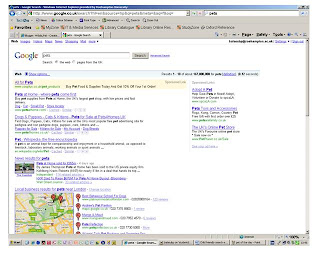The internet is a vast resource, though it holds a number of benefits, such as the quantity of data you have at your fingertips, it can be particularly hard for novices to sift through and filter the most appropriate information. It is our responsibility as adults to ensure that children are taught safe and responsible behaviours as soon as they are old enough to start using digital technology. Teachers are required, as part of their wider duty of care, to raise the awareness of the risks associated with inappropriate contact via new technologies and inappropriate online content and commerce; additionally, teachers using technology in the classroom have to ensure that children are aware of appropriatwe online behaviour on a regular basis.
To help children surf the internet in a safer environment child-friendly search engines are available and specially designed for children, e.g. http://www.yahooligans.com/ and www.askkids.com . It is common in schools for children to asked to investigate a chosen topic area. Using the example of a project on pets, I have compared the use of yahooligans with google to reasearch the topic area.
Using Google as a search engine (www.google.com) , and with the same key word ("pets") I was faced with approximat ely 167 000 000 results, many of which were retailers and advertisements aimed at adults.
ely 167 000 000 results, many of which were retailers and advertisements aimed at adults.

I feel, with the vast amount of results recovered, from this search engine in particular, that children will definately need skills on refining their search and on staying safe and aware of risks that they may be faced when searching independently. Schools, organisations and homes can put filters in place to restrict and reduce these threats.
To help children surf the internet in a safer environment child-friendly search engines are available and specially designed for children, e.g. http://www.yahooligans.com/ and www.askkids.com . It is common in schools for children to asked to investigate a chosen topic area. Using the example of a project on pets, I have compared the use of yahooligans with google to reasearch the topic area.
A child is likely to type in "pets" into the search bar. With both search engines I used this as my key search term, but both produced slightly different results.
Below can be seen the searches elicited by the yahooligans search engine. It retrieved 8530 results that it filtered down for the children and displayed them in a simplified format, with further child-friendly/child-directed filter options e.g. in movies, in jokes.
Using Google as a search engine (www.google.com) , and with the same key word ("pets") I was faced with approximat
 ely 167 000 000 results, many of which were retailers and advertisements aimed at adults.
ely 167 000 000 results, many of which were retailers and advertisements aimed at adults.
I feel, with the vast amount of results recovered, from this search engine in particular, that children will definately need skills on refining their search and on staying safe and aware of risks that they may be faced when searching independently. Schools, organisations and homes can put filters in place to restrict and reduce these threats.



No comments:
Post a Comment